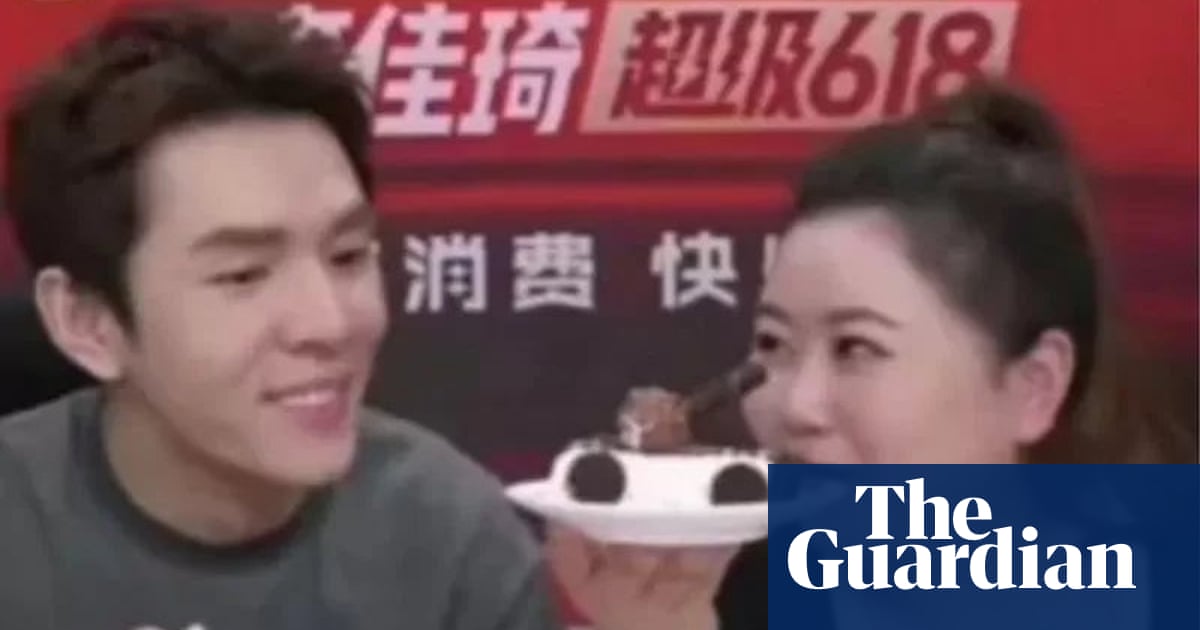Li Jiaqi: Chinese influencer’s career hangs in balance after ‘tank cake’ stream
Li Jiaqi was trained as a dancer but discovered a knack for selling lipsticks in his early 20s. Even before he became one of China’s most popular online salesmen, his maverick style had won repeated praise from his customers and employers alike.
Until last week, when the influencer also known as Austin Li’s online sales broadcast was abruptly terminated following a brief appearance of a “tank cake” (seen by many as a symbol of the bloody 1989 Tiananmen Square crackdown), Li’s story was one of the many rags-to-riches tales touted in the media to inspire those young Chinese who wish to break into business.
His career began in 2015 in the south-eastern Chinese province of Jiangxi, where Li – at the time 23 years old – became a beauty consultant at L’Oréal’s cosmetics counter in a shopping mall. Shortly after settling in, Li observed that only few customers were willing to try lipstick samples directly, so he set out to do something new: testing the colours of lipsticks with his own lips for customers.
The experiment made him a superstar. Buyers loved Li’s performance and he subsequently won a sales title for his small counter multiple times. Then when online sales began to blossom in China, Li seized on the opportunity. In 2018, he broke the Guinness World Record for “the most lipstick applications in 30 seconds” during his live webcast with his fans on Taobao, an e-commerce platform which is part of the huge Alibaba technology company.
To many ordinary Chinese consumers, Li is known as a darling of some of the country’s biggest e-commerce platforms. With his mantra of “OMG” during sales streaming sessions, Li had garnered nearly 45 million fans on Douyin – the Chinese version of TikTok and an estimated net worth of more than 100m yuan (almost £12m).
Jack Ma, Alibaba’s founder and an established business celebrity in China, went into a sales competition with Li to sell lipsticks that year during the “Double Eleven” annual online shopping festival. Li beat Ma in the end and won him the nickname Lipstick Brother No 1.
Taobao reported that during China’s national Covid lockdown in 2020, Li was their number one anchor for three consecutive months. In one broadcast in April, Li and his sales partner – a Chinese central TV anchor – achieved sales of up to 40m yuan in a span of two hours. Nearly 11m people from around China watched it and commented on his maverick performance.
With popularity also came the responsibility to promote China’s own brands at a time of rising nationalism and Beijing’s worsening relationship with western capitals. Last year, in a documentary called Proudly Made in China, Li questioned why China’s own brands were not trusted by consumers. “I want to do my best to give admission tickets to these Chinese brands,” he said.
But Li’s public persona as both a popular and patriotic business celebrity is now hanging in the balance, said Dr Lüqiu Luwei of the Hong Kong Baptist University. On the eve of the 33rd anniversary of the Tiananmen killings, Li’s streaming was abruptly cut when he appeared to present an ice-cream cake with chocolate decorations that looked like a tank.
A Chinese man stands alone to block a line of tanks heading east on Beijing’s Changan Blvd 5, in Tiananmen Square, June 1985. Photograph: Jeff Widener/AP
Reference to the deadly 1989 crackdown on student-led protests – as well as the most famous image from the demonstrations, of a man standing in front of a row of tanks – is strictly censored in China.
“Most of Li’s generation of young Chinese people are not even aware of what had happened on that day of 33 years ago, let alone deliberately bringing it up as a means of protest,” Lüqiu said.
Since the incident, Li has not been posting on his normally active social media account. Chinese entertainment insiders said that an inter-company investigation is underway to determine what had happened – who made the cake, and whether its appearance was a mere coincidence or an intentional act.
But Lüqiu said whatever the result, the Chinese censors’ act of pulling Li’s streaming has inadvertently prompted many young Chinese to question why a tank could cause such a drama. “Ironically, many on Chinese social media seem to know why now. They call it the Li Jiaqi Paradox.”













